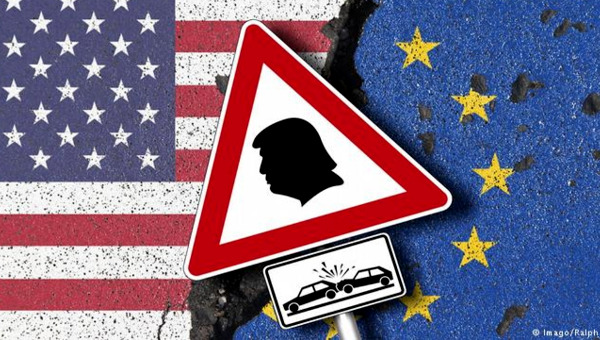Putting the U.S. Economic Crisis in Perspective
It is time to take stock. The centrality of the American economy to the capitalist world – which now literally does encompass the whole world – has spread the financial crisis that began in the U.S. housing market around the globe. And the economic recession which that financial crisis has triggered in the U.S. now threatens to spread globally as well.
Capitalism has had an incredible run – politically and culturally as well as economically – since the stagflation crisis of the 1970s. The resolution of that crisis required, as economists put it at the time, ‘reducing expectations’ of the kind nurtured by the trade union militancy and welfare state gains of the 1960s. This was accomplished via the defeats suffered by trade unionism and the welfare state since the 1980s at the hands of what might properly be called capitalist militancy. This was accompanied by dramatic technological change, massive industrial restructuring, labour market flexibility and the over – all discipline provided by ‘competitiveness.’
It was also accompanied, of course, by massive economic inequality. But this did not mean capitalism was no longer able to integrate the bulk of the population. On the contrary, this was now achieved through the private pension funds that mobilized workers savings, on the one hand, and through the mortgage and credit markets that loaned them the money to sustain high levels of consumer spending on the other. At the centre of this were the private banking institutions which, after their collapse in the Great Depression, had been nurtured back to health in the postwar decades and then unleashed the explosion of global financial innovation that has defined our era.
The question begged by the current crisis is whether capitalism’s capacity to integrate the mass of people through their incorporation in financial markets has run out of steam. That the fault line should have appeared in ‘sub-prime’ mortgage loans to African-Americans is hardly surprising – this has always been the Achilles heel of working class incorporation into the American capitalist dream. But an economic earthquake will actually only result if there is a devaluation of working class assets in general through a collapse of housing prices and the stock and bonds in which their retirement savings are invested.
We are by no means there yet. The role being played to prevent just this by the Federal Reserve, very much acting as the world central bank in light of the global implications of a U.S. recession, should once and for all dispel the illusion that capitalist markets thrive without state intervention. It was through the types of policies that promoted free capital movements, international property rights and labour market flexibility that the era of free trade and globalization was unleashed. And this era has been kept going as long as it has by the repeated coordinated interventions undertaken by central banks and finance ministries to contain the periodic crises to which such a volatile system of global finance inevitably gives rise.
The Fed has repeatedly poured liquidity into its financial system at the first sign of trouble. Yet the capacity of the system to go on integrating ordinary Americans through the expansion of investor and credit markets in this way may have reached its limit. This is indeed suggested by the Bush administration’s sudden (non-military) Keynesian turn with its recently announced $150 billion fiscal stimulus. The announcement at the same time of massive public expenditure cutbacks by the Schwarzenegger administration in California is a reminder, however, that fiscal stimulus at the federal level may be undone at the state level.
This is especially likely to be the case with municipal government cutbacks, given their massive dependence on property taxes. The recent evidence that the financial institutions that specialize in selling risk insurance on municipal bonds are enveloped in the credit crisis further compounds the problem. This indeed brings to mind the extent to which it was municipal governments that were on the front lines of the Great Depression. The kind of fiscal stimulus that is needed to boost the economy now probably entails public infrastructure spending, but the type of state intervention that brought us financial globalization is not well suited to this, as the collapsed levies of New Orleans and the collapsed bridges of Minneapolis prove.
To see this go unmentioned in the Democratic primary debate this week may be hardly surprising given the absence of even a trade union campaign around this, but it bespeaks an impoverishment of American politics that in fact goes all the way back to the New Deal. The issue of economic democracy that had been placed on the political agenda alongside the New Deal’s public infrastructure projects was set aside for the remainder of the century after the FDR’s administration’s self-described ‘grand truce with capital’ in the late 1930s.
There should be no illusion that a recession, or even a depression, will necessarily bring the issue of economic democracy back onto the U.S. political agenda. It would require a transformation of American politics to do so – and that too would have global implications.


